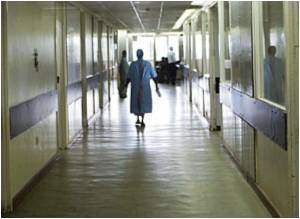The growing use of rapid response teams dispatched by hospitals to evaluate patients whose conditions have suddenly deteriorated may be masking systemic problems in how hospitals care

"We need to think about why patients are deteriorating in the first place and do something rather than waiting until they fall off the cliff," says Pronovost, who is also medical director for Johns Hopkins'' Center for Innovation in Quality Patient Care. "There''s often this decline before patients crash. It''s typically not all of a sudden. Why doesn''t healthcare prevent the crash or pick it up earlier?"
At the same time, he says, research on whether rapid response teams (RRTs) are effective is equivocal at best.
Patients deteriorate because they acutely get worse despite getting appropriate care or because they are receiving less care than they need, Pronovost says. The latter is thought to be the far larger group as RRTs typically end up bringing ICU-level care to a patient''s bedside. The deeper question is why patients are not getting the level of care they need, he says.
Rapid response teams, he says, are really just a "reactionary solution and in many ways a workaround for a broken system and culture."
Rapid response teams are likely to be sent to attend to patients who have been released from the ICU to the floor, where they receive less intensive care. Often a patient is released from the ICU because his bed is needed for a sicker patient. Still, Pronovost says, the answer isn''t necessarily adding more beds to the ICU. The ICUs aren''t always overcrowded, though there are many times - typically during the middle of the day during the middle of the week - when there are more patients than beds. This forces hospitals to make difficult decisions, and many times that translates into someone being sent to an inadequate unit where they may be at a greater risk of deterioration or even death, he says. Better management of patient flow can go a long way toward improvement, he says, as can having surgeons spread operations out over the course of a week, rather than doing the majority of them early in the week.
Advertisement
Meanwhile, the success of a rapid response team is determined through what Pronovost calls "perverse accounting." They are judged, he says, by counting the number of people saved or identified to be sent back to the ICU. "Imagine if we sent everyone from the ICU to the parking lot instead of to the floor," Pronovost says. "The rapid response teams would look like they''re doing wonders because they would have to come in and save all of those patients. It''s not a rapid response team issue. It''s sending them to the proper level of care.
Advertisement
Source-Newswise










